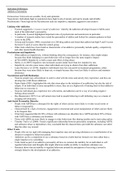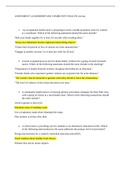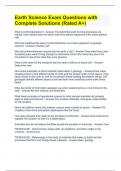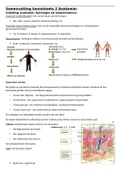Summary
Summary Cognitive Bias Explanation for Psychology WJEC A Level Unit 3
- Institution
- WJEC
Detailed revision notes for WJEC Psychology Unit 3. Cognitive Bias explanation of addiction including research references and evaluation points.
[Show more]








